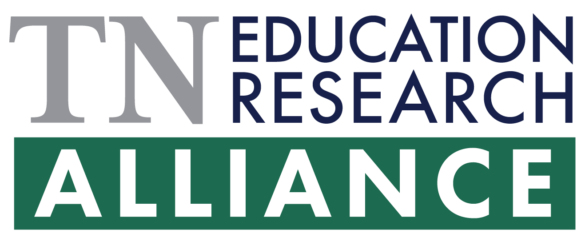
More than three-quarters of teachers in the recent Tennessee Educator Survey selected technological supports for remote learning as the most helpful supports needed to promote educational access during COVID-19 school closures.
Today the Tennessee Education Research Alliance at Vanderbilt University released a brief from the Tennessee Educator Survey highlighting responses about COVID-19 school closures. More than 25,000 Tennessee teachers, representing 40 percent of teachers statewide, completed this portion of the survey, which was conducted in partnership with the Tennessee Department of Education between April 4 and May 1.
Teachers across Tennessee responded to questions about their experiences during the school closures. Through open-ended comments, educators also shared their thoughts on the most important resources needed to support students and provide remote learning opportunities throughout the rest of the school year.
“Educators across Tennessee consistently reported on technological barriers preventing remote learning, their concern for student access to crucial services, and their need for additional guidance and resources,” said Susan K. Patrick, one of the study’s authors and a post-doctoral scholar with TERA. “These needs were even more pronounced in rural communities lacking internet infrastructure and schools serving more low-income families.”
The primary findings from educator responses include:
- Student Access: More than half of teachers identified access to remote learning or access to crucial services, like meals and counseling, as among their top concerns about students amid school closures.
- Technological Needs: More than three-quarters of teachers selected technological supports for remote learning (e.g., internet access and reliable devices) as the most helpful supports needed to promote educational access, and educators discussed the need for these supports to address educational inequities.
- Guidance and Resources for Remote Learning: Schools and districts were identified as important sources of guidance for teachers in planning remote learning. Teachers described additional instructional needs, such as teacher training on virtual learning and guidance for supporting students with disabilities and English learners.
- Student Engagement: More than two-thirds of teachers reported regularly sending electronic learning resources to promote remote learning while fewer than one-quarter reported regularly planning virtual classes. This engagement varied across different types of districts.
These findings speak to the ongoing challenges educators faced during the spring, and point to several critical barriers to quality remote learning that will remain salient if school buildings are unable to fully open for the 2020–2021 academic year.
“Each year, the Tennessee Educator Survey gathers critical input from our state’s educators, and I am particularly grateful for TERA’s quick work this year to add the COVID-related questions. The results provide an important picture of how educators navigated the unprecedented school closures and help us identify the top needs moving forward,” said Tennessee Education Commissioner Penny Schwinn. “Educators and district leaders alike continue to identify technology supports as a priority and the department has planned to allot half of the state-level CARES Act funding—13 million dollars—toward technology grants and solutions. Thank you to all of the educators who participated in the survey, your voice and input is so important, as we move forward together.”
The COVID-19 questions comprise just one portion of the questions on the 2020 Tennessee Educator Survey. Additional analysis of the remainder of the questions on the Tennessee Educator Survey and overall results will be available by August 2020. As the COVID-19 pandemic extends into the summer and next school year, TERA plans to continue documenting educator experiences and policy responses in partnership with the Tennessee Department of Education. TERA will also engage in further research to study the effects of COVID-19 on students, teachers, and schools.
Download the full brief: “Teaching Through a Global Pandemic: COVID-19 Insights from the Tennessee Educator Survey”
The Tennessee Education Research Alliance is a unique research partnership between Vanderbilt Peabody College of education and human development and the Tennessee Department of Education committed to informing Tennessee’s school improvement efforts with useful, timely and high-quality studies.